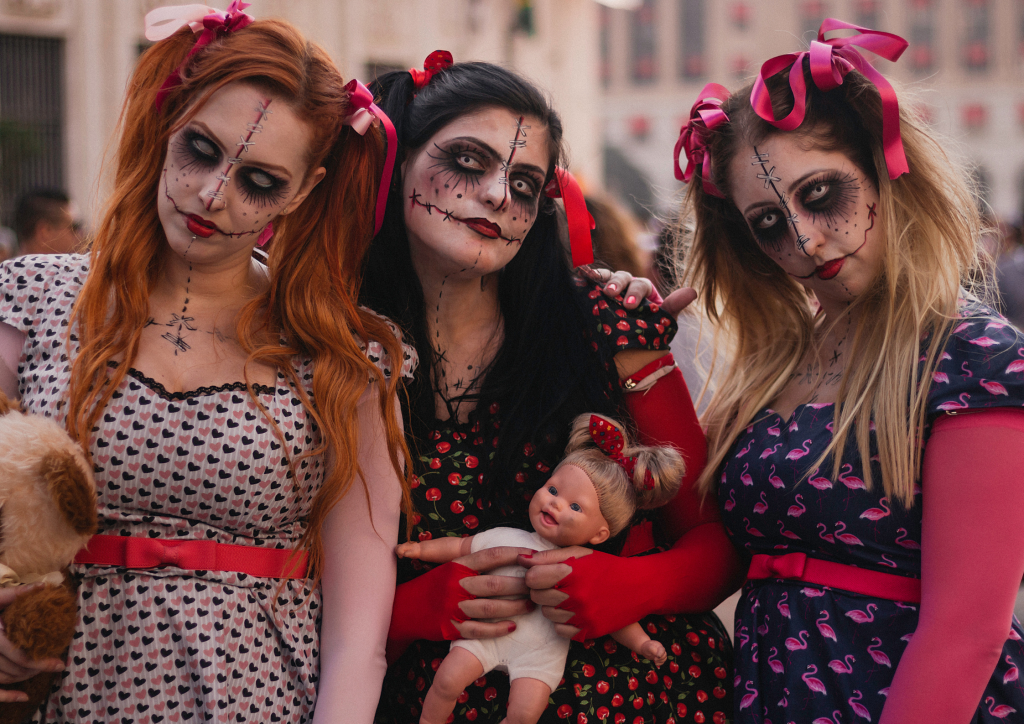
After Fresher’s week, a highly anticipated time for first years starting off at university, Halloween marks the second most awaited celebration. Royal Holloway had organised a chain of events, from pumpkin carving to horror movie nights, but the majority look forward to all the Halloween parties. Like every year, students scattered the campus in elaborate or last-minute costumes and as usual there were an overwhelming number of girls stereotypically dressed. The sexy police officer, sexy schoolgirl, sexy nurse – you get the idea. So, the unavoidable question stands. Are girls peer pressured into choosing these costumes, in the hopes of fitting in, or is it empowering to know you can be anything you want for a night?
For students and young people in general, Halloween celebrations gravitate around the night life. With the holiday taking place so early in the academic year, freshers have another opportunity to meet people and socialise. But, Autumn settled in to fit the spooky season, so girls start to feel paranoid and unsafe, both at night and just walking down the street alone. With good reason, their unsettlement is justified and aggravated by a horrifying statistic from the Rape, and Abuse Network, showing that “more than 50% of college sexual assaults occur in either August, September, October, or November”. However, sexual assault incidents seem to be higher this year, with the social media frenzy over the horror of injection spiking reaching a fever pitch in the last few weeks. With peer pressure and the want to feel attractive, sexual objectification is rife on Halloween. Men wrongly assume that the way girls choose to dress is an invitation and an implied approval to harass them. This sexualised image of women on Halloween gives assaulters a sense of superiority over the more vulnerable. Disguised, and so anonymous to any consequences, right? At the other end of the spectrum, we have girls who, despite some society progression, will first be asked ‘But, what were you wearing?’.
Appalling.
Reduced to the ‘passive victim’ or ‘sexual object’ on Halloween, women picking their own costumes is a direct rebellion against oppression. The media – a male dominated industry – is arguably at fault for using outlets to sexualise a female’s body. Ultimately, without an explicit form of consent, the way someone dresses should not give men the green light to scrutinise women. In response to increasing spiking rates in night clubs, Royal Holloway students stood up for female safety through the ‘Night in’ campaign on October 27th, that gained rapid traction at universities across the country. Isn’t it absurd how the ones who should protect us still blame women for a man’s misogyny? The sexism prevailing on Halloween, with insecure girls feeling the need to seek male validation, only takes the feminist movement back to the 1950s. We are not objects to be stared at, trophies to be won, weaker than men. Wearing a sexy costume is a big ‘Fuck you’ to the patriarchy, having the audacity to think women can be put in a box. On the contrary, girls are not insecure, rather taking pride in their Halloween disguises to show confidence and empowerment. The sexy doctor, firefighter or lifeguard are all examples of women taking their place, parodying the traditionally male dominated industries.
Recently, some on social media platforms showed their support to women and the danger imposed at this time of the year. The abolishment of sexist ideals is undeniably urgent and so, the rape crisis centre took it to Instagram to promote consent during Halloween. The “Costumes are not consent – yes means yes no means no” post was immediately shared by thousands. Yes, these campaigns raise our social awareness and signal that there is an ignorance surrounding sexual assault, a threatening reality accepted by women as something they have to live with. But a woman’s safety at all times, day and night, not just at Halloween, is yet to be granted. Clothes are not consent, full stop – they shouldn’t need to be fancy dress to be free of assumptions of sexual availability.
So, when going out over the holidays: stay safe. A woman shouldn’t be peer pressured into picking something more revealing, in the same way she shouldn’t be made uncomfortable if she chooses to do so. Would men enjoy themselves on a night out, or anywhere for that matter when being harassed and objectified by peering eyes 24/7? No. What needs to happen is a realisation that sexual harassment is not a game – much easier to get away with on Halloween – it’s a severe crime.
